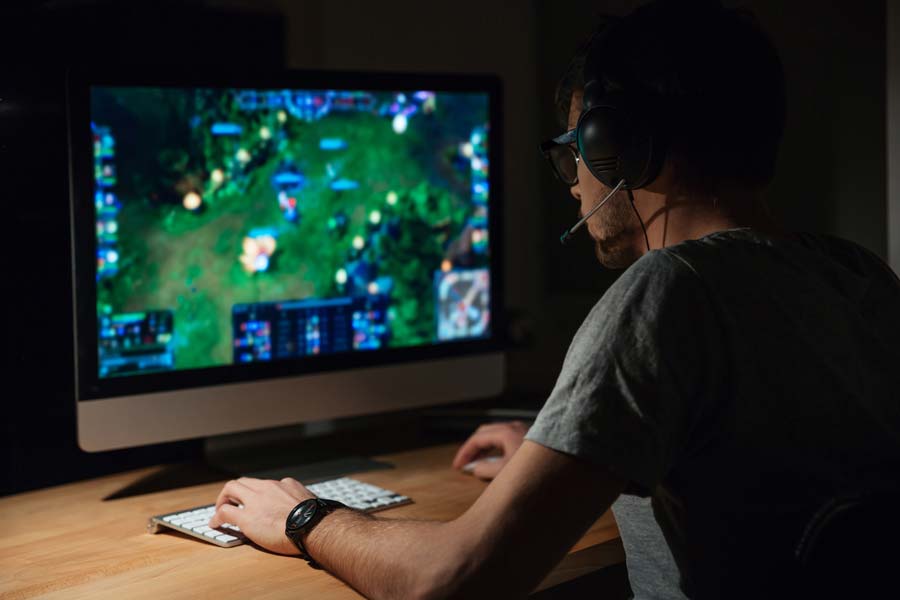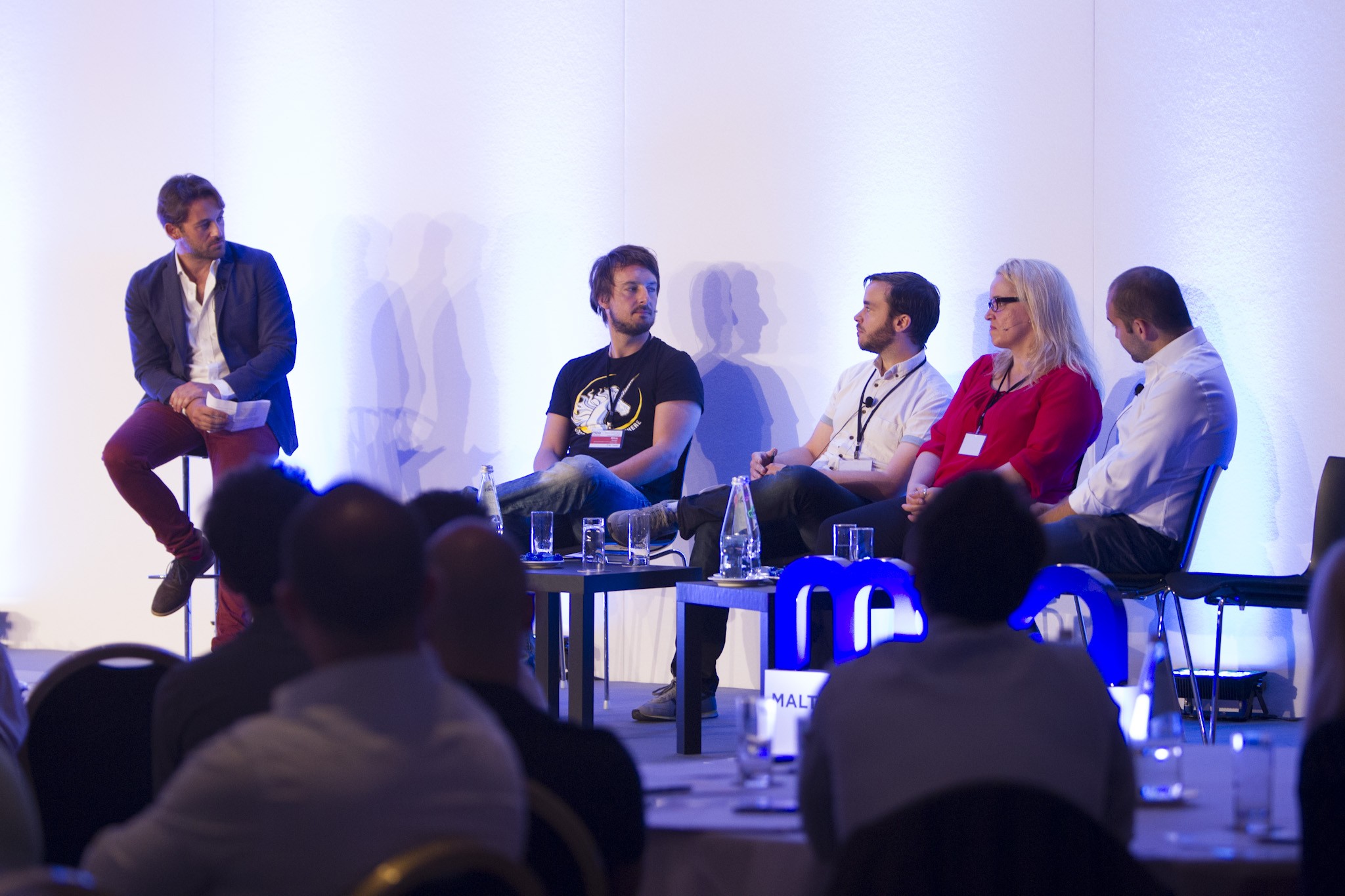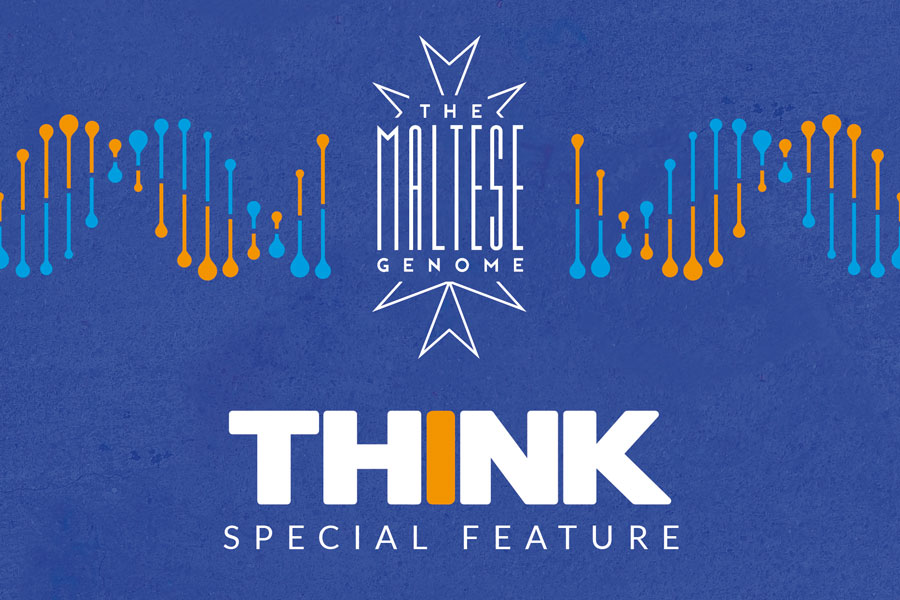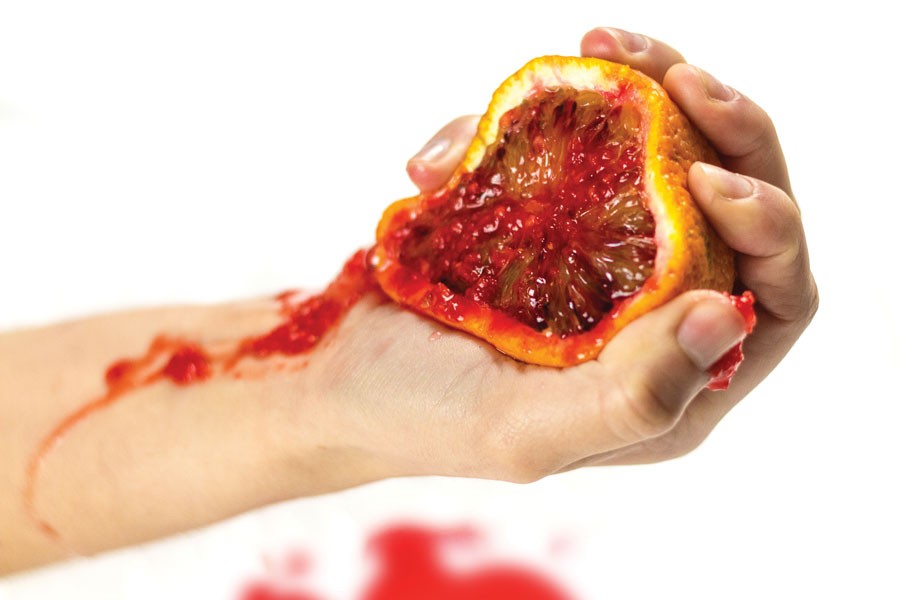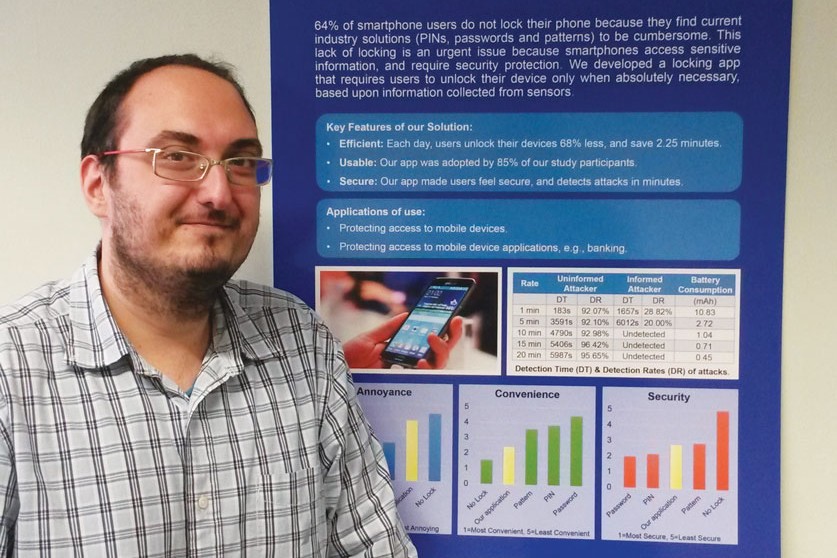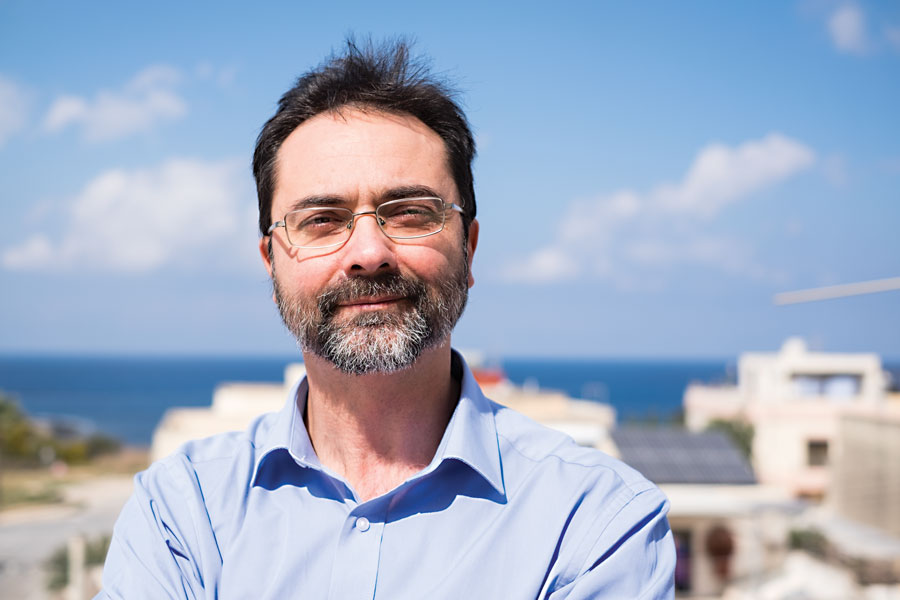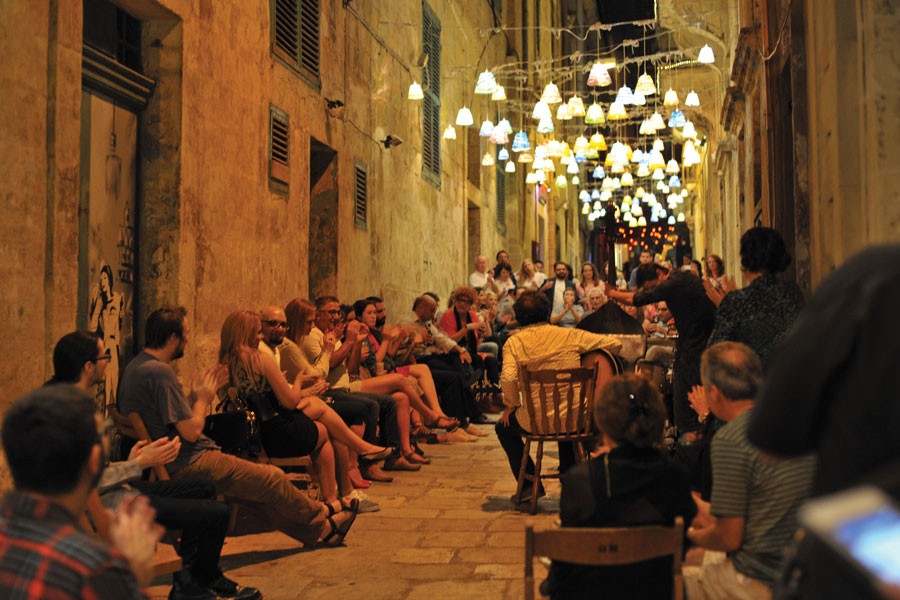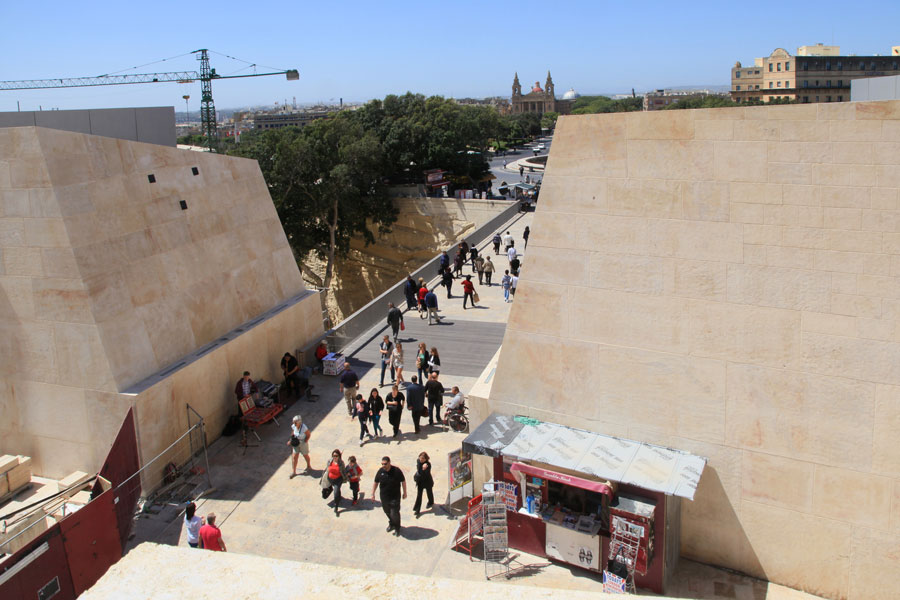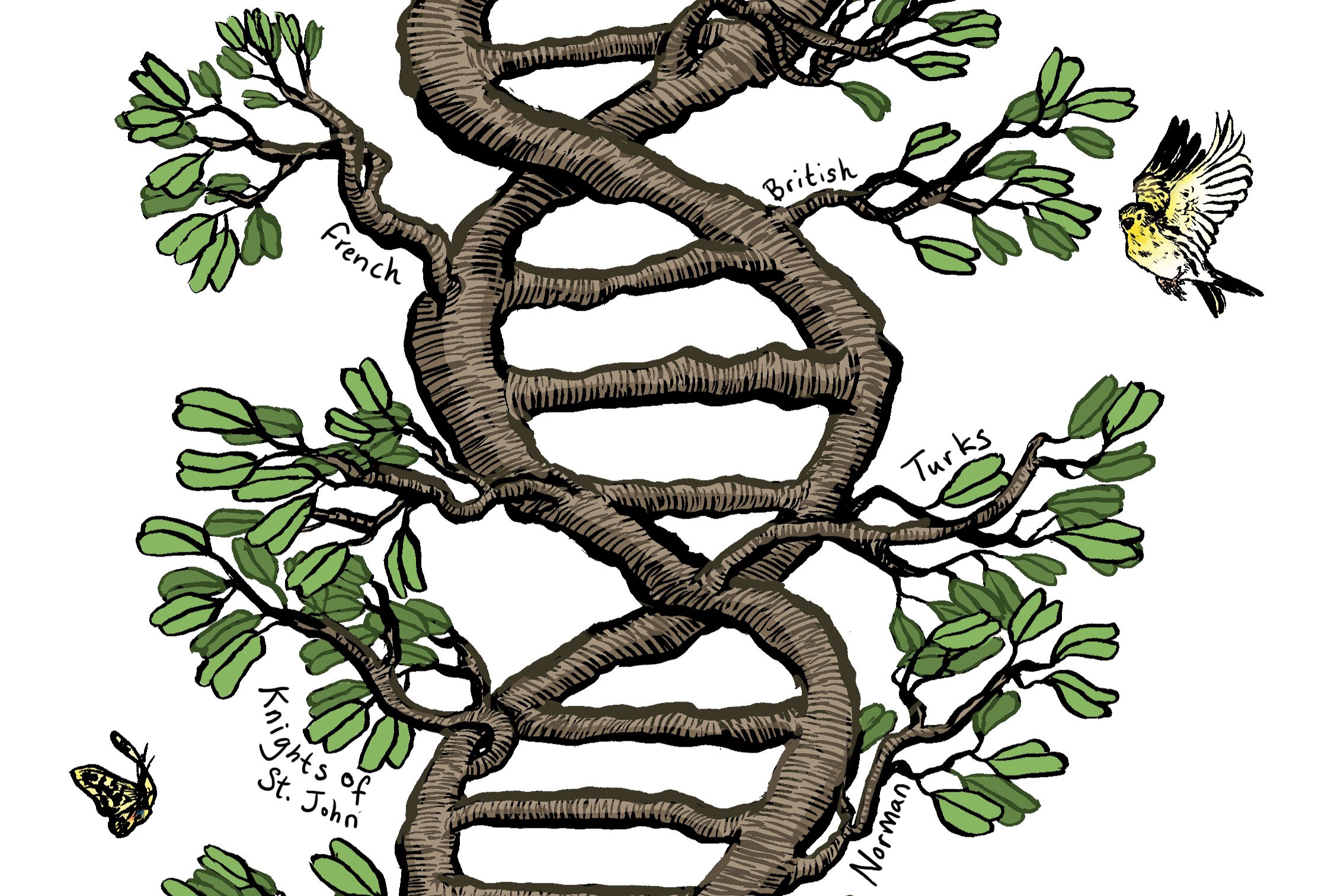Tenor Joseph Calleja to open start-up conference
Start-ups to change a country. Lars Lorenz meets TAKEOFF Business Incubator manager Andy Linnas to find out more.
Start-up companies have evolved from being nice to have into a must have. Traditional business models cannot match their capacity to advance into uncharted territory and risk taking abilities. Banking, media, telecommunication, and manufacturing are only a few examples that have changed heavily since the start-up culture exploded. The rapid change has uncovered major challenges. Networks are lacking, allowing for no easy way to collaborate or share ideas, which is key for young start-ups to succeed. The gap between small businesses and established companies is undesirable to sustain a healthy economy.
 The ZEST conference offers a unique opportunity for entrepreneurs, managers, students, and those interested in business to chat and share knowledge. The two-day event is organised by the Malta Communication Authority in collaboration with the TAKEOFF Business Incubator (University of Malta). Armed with their past experience the team invited more than 34 different speakers. Contrary to other events, ZEST throws excessive formalities out of the window and focuses on creating an enjoyable atmosphere instead.
The ZEST conference offers a unique opportunity for entrepreneurs, managers, students, and those interested in business to chat and share knowledge. The two-day event is organised by the Malta Communication Authority in collaboration with the TAKEOFF Business Incubator (University of Malta). Armed with their past experience the team invited more than 34 different speakers. Contrary to other events, ZEST throws excessive formalities out of the window and focuses on creating an enjoyable atmosphere instead.
The venue, Westin Dragonara Resort’s Conference Centre, is outfitted with a tech demo space, piazza, and co-working area. The setup encourages chats in breaks and between talks to share ideas and encourage participants to start working on their next big project. ‘ZEST tries to be an event not just for techies. It caterers to everyone’s interest,’ says Andy Linnas. Their unusual approach is clear: the famous tenor Joseph Calleja is opening the conference to talk about the classical music and opera industry.
Malta stands to gain by opening up internationally. The Islands can show what it has to offer, while local businesses can obtain fresh inspiration from abroad. Even established companies can benefit immensely, since they need start-ups to innovate. Conquering emerging markets quickly is essential to staying competitive, but big business cannot adapt that quickly. They need start-ups to go into these niches for them, and in turn large corporations need to provide the necessary resources to do so.
‘If businesses don’t prepare and become flexible and open to change, many may lose out on this revolution.’
Linnas experienced the possible impact of such events first hand during Latitude59, a big start-up conference in Estonia. It is now in its 9th year, but beforehand Estonia hardly had a start-up culture. Today the landscape has changed. Whole parts of the city have been refurbished into modern areas filled with restaurants, office space, and apartments, ready for people from all around the world to move in. Having that international talent intertwining with the Estonian community allowed start-ups to raise over €100 million of investments that created thousands of jobs. This movement placed Estonia on the map. ‘I believe society will always benefit from startup culture and we can make this happen in Malta,’ Linnas envisions.
ZEST is the first step in that direction. It will be happening from 27–28 June at Westin Dragonara Resort, St. Julian’s. Prices start at €149, while university staff and students are being offered special rates. For more information visit their website or contact ZEST directly.
Special Feature – The Maltese Genome
DNA is what life is made of. Found in every cell of the human body, it has sent criminals to jail and been the focus of controversial court cases. Dr Jean Buttigieg discusses these legal and ethical issues. DNA has also transformed the meaning of being human, with traits from disease to intelligence all linked to it. DNA is changing the world.
Blood, Genes, and You
Over the course of nine months, an entire human body is sculpted from a few cells into a baby. The blueprint is the information written into our DNA. But what happens if there is a mistake in these blueprints? Decades worth of research carried out in Malta and abroad have aimed to understand how these errors lead to a disease common in Malta and prevalent worldwide.
Scott Wilcockson talks to Dr Joseph Borg (Faculty of Health Sciences, University of Malta) to find out more.
Shiny, ‘appy people
Dr Nicholas Micallef is fascinated by technology and has an outgoing personality. He recently made a name for himself thanks to his invention of a security app. Veronica Stivala writes about how he fought disappointment and skepticism to reach new heights.
Why practise Taijiquan?
In the 12th century, the Shaolin Monk Chang San Feng witnessed a battle between a snake and a crane, during which the snake managed to conquer its opponent with its grace. The monk went on to formulate a set of movements, which have become the basis of Tai Chi, a martial art based on the pillars of Taoism, Confucianism and Buddhism. Taoism upholds the importance of being one with nature and the universe.
Taijiquan shares concepts with Confucianism, a system of philosophical teachings that stresses that all under the sky is one family. Everyone can be part of this great family regardless of their social status, political or religious creed. By practising Tai Chi together and sharing knowledge, participants learn and develop respect and obedience; qualities stressed by Chinese teacher and founder of Confucianism, Confucius.
During my Tai Chi classes, I like to first develop the technical aspects of a student’s movements in order for them to have a solid foundation. This is then followed by an emphasis on self-expression through movement and concentration on these movements. In the film Enter the Dragon, Bruce Lee tells his apprentice ‘like a finger pointing away to the moon. Do not concentrate on the finger or you will miss all that heavenly glory.’ At first a movement is just a movement. However, after constant practice and analysis, the practitioner realises that the movement has a rhythm behind it and this charges them with feeling, a process that resembles the way a musician feels the beat/the rhythm when performing.
The benefits of Taijiquan
Taijiquan is a good method to alleviate stress and achieve good health. Rather than going to a gym, where a lot of energy and effort are required, with Tai Chi, a lot can be achieved without any force, and like Taoism, Tai Chi is based on the principle, known as Wu Wei (effortless effort). This means that those who practise Tai Chi should be soft and flexible in the same way that water flows smoothly. Water can take the form of any container yet on its own it is formless and shapeless.
Some scientific studies have shown Tai Chi’s benefits. One study concluded that moderate Tai Chi practice helps older people maintain fitness, while other studies showed that Tai Chi was good for a healthy and well-functioning heart, as well as to regulate blood pressure levels.
Taijiquan is based on the principle of Yin and Yang, an element of Chinese philosophy that describes how two contrary forces can be complementary. Building on this belief, those who practise the discipline try to achieve harmony which in turn brings with it good health.
The enduring appeal of Star Trek
I am often asked why Star Trek appeals to me and so many others. For me, the answer lies with its founder, the humanist Gene Roddenberry. Humanism is defined as ‘a faith in and commitment to shared humanity’.
Secular Humanism is not an ideology or fixed ethical system but a collection of general guidelines that should allow humanity to increase its knowledge to further its collective wellbeing. The philosophy seeks to establish moral principles that are independent of any mystical sources, though they remain conducive to the freedom and wellbeing of the populace based on ethical reasoning. The term Secular Humanism explicitly rejects the supernatural and the primacy of moral codes based solely on religious convictions. Secular Humanist philosophy offers an alternative to more traditional ethical and moral concepts.
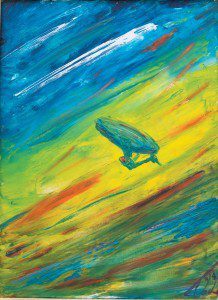
Humanism is rooted in the oeuvre of the philosopher John Locke, who asserted that everyone has the natural right to ‘life, liberty, and property’ as well as in the work of philosopher Adam Smith, who addressed the importance of private property and free trade.
Star Trek’s brand of secular Humanism appeals to all since no deities are invoked. When people invoke God or gods this almost inevitably precipitates arguments on which religion is correct or true. Such conflicts are a principal source of past, present, and future contention.
Television aliens can be read as ciphers and metaphors for humanity. Humanism could be interpreted as a belief system that is a useful point of reference to explore human differences. The medium of science fiction combines these two, leading to open dialogue and self-insight to bridge the artificial gulfs that separate us as individuals and as races.
The Star Trek universe continues to offer ‘an alternative, liberal future that not only has eliminated poverty, racism, sexism, jingoism, and colonialism, but also challenges contemporary society to rectify such unacceptable states of affair’.
Star Trek, like other science fiction, has an unshakeable ‘belief in the liberating power of the imagination’ to optimistically create utopian worlds that help us realise ‘our limitations, and thereby to move beyond them toward a more inclusive awareness’ of humanity’s potential.
Maltese Cultural Participation: What do the people want?
Malta is rich in culture—that is a fact beyond contention – and whose vast range of cultural activities attract different people with varied interests. But how does this fit in the context of Valletta being the European Capital of Culture (ECoC) in 2018?
Before delving into the many questions that surround this, one needs to perhaps address what we understand by the term ‘culture’ – are we talking about traditions or art? Cultural participation in Malta is often believed to be low, and a Eurobarometer survey carried out in 2013 confirmed that the Maltese are among the least active participants in culture in Europe. However, culture is not something that can be given a clear-cut definition. The term can refer to anything from art exhibitions to the more popular, traditional festi (feasts). Such feasts are not taken into consideration by many surveys like the Eurobarometer.
The Valletta 2018 Foundation’s research department has therefore embarked on a five-year research process (2015–2019) whereby it aims to understand the factors that affect cultural participation to create a body of research that will shed light on participation in the sector. The research will help artists, cultural practitioners, and policy makers.
Last year, the Valletta 2018 Foundation conducted the first in a series of surveys that are looking into cultural participation in Valletta. The survey, carried out in collaboration with the National Statistics Office, asked 1,138 respondents about their preferred cultural activity. The top three cultural activities the Maltese public enjoyed were citywide activities such as Notte Bianca, followed by Carnival, and visits to museums and historical sites.
The events took place in Valletta and registered more active participation from residents than from those living outside the city’s walls. Valletta residents are more likely to have attended artistic exhibitions and events when compared to non-Valletta residents (18% vs 12%). People from the island’s Northern Harbour region (the area around Marsamxett Harbour and neighbouring areas) placed second after Valletta residents in their likelihood to have attended some form of cultural event in the capital. On average, 35% of residents from the Northern Harbour region have attended some form of cultural activity in Valletta, compared to an average of 15% from other regions. These statistics give the impression that physical proximity plays an important role in the degree of cultural participation. People commented on the pleasant atmosphere and the sense of unity events created while others said that such events make for a different kind of family outing.
The Maltese people also seem to enjoy the performing arts. Other popular activities include going to the cinema or attending film screenings, artistic exhibitions and events, live music and live theatre events. These are followed by the Valletta parish feasts—more traditional activities tied to the city itself. Dance is not as appreciated as other performing arts disciplines, with a staggering 94% of respondents claiming they had never attended a dance performance. The only other activities less well-attended are passion plays in Easter time (95% never attended) and the Regatta (96% never attended).
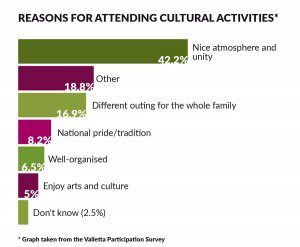 The general consensus of the respondents was that Valletta is a cultural city which is improving in terms of its cultural offerings as well as its image. However, attendance for Valletta’s cultural events is still relatively low with people showing a lack of interest in cultural activities (38% of respondents claimed that they do not attend cultural events as they are simply “not interested”). This statistic is a concern in the light of the fact that Valletta will be capital of culture in just two years. It is the role of the Foundation to use these findings to find new opportunities that can boost cultural participation and encourage engagement with cultural activities. This data can also help other entities and practitioners in the sector.
The general consensus of the respondents was that Valletta is a cultural city which is improving in terms of its cultural offerings as well as its image. However, attendance for Valletta’s cultural events is still relatively low with people showing a lack of interest in cultural activities (38% of respondents claimed that they do not attend cultural events as they are simply “not interested”). This statistic is a concern in the light of the fact that Valletta will be capital of culture in just two years. It is the role of the Foundation to use these findings to find new opportunities that can boost cultural participation and encourage engagement with cultural activities. This data can also help other entities and practitioners in the sector.
The Foundation has developed a varied cultural programme, which is open, engaging, and accessible. To complement the aforementioned Valletta Participation Survey, the Foundation has also carried out an in-depth, qualitative analysis of its cultural programme. This research shows that the Valletta 2018 Cultural Programme not only includes projects related to the visual arts and feasts in Valletta, but also other community projects, aiming to eliminate barriers that prevent cultural participation and that allow for the co-creation of cultural activities and audience development. The study shows how the Foundation is taking a contemporary approach in developing cultural projects, by looking at a long-term development process and aiming for a long-lasting legacy. This research shows how that, to date, the Valletta 2018 Cultural Programme has focused on community and interdisciplinary projects, as well as projects involving music and film.
Both the Valletta Participation Survey and the qualitative analysis of the Valletta 2018 Cultural Programme will continue to be carried out in the coming years. Such studies explore the relationship between the cultural programme and participation countrywide in order for changes in the level of cultural participation in the Maltese Islands can be compared.
The Valletta 2018 Evaluation and Monitoring research process is a five-year project (2015–2019) that is looking into the impacts of Valletta 2018 on the country. The Valletta Participation Survey is a study carried out in collaboration with the NSO that takes place on a biannual basis. The qualitative study, titled ‘A Comprehensive Analysis of the Valletta 2018 Cultural Programme’ is being carried out by Daniela Blagojevic Vella.
Think Critically, Think Malta
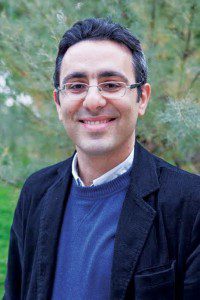
Let us strengthen Malta’s democratic system by thinking critically. We need to learn how to avoid blindly accepting or rejecting ideas and opinion based on our political affiliations or unquestioned, long-held beliefs. Let us actively go against the dualistic thinking that dominates local public debate. Let us, for example, phase out media outlets financed by political parties; amend the constitution to facilitate the entry of a third political party to parliament; and put critical thinking at the centre of our educational system by strengthening subjects that enhance it (literary and rhetorical analysis, logic, philosophy and the scientific method).

